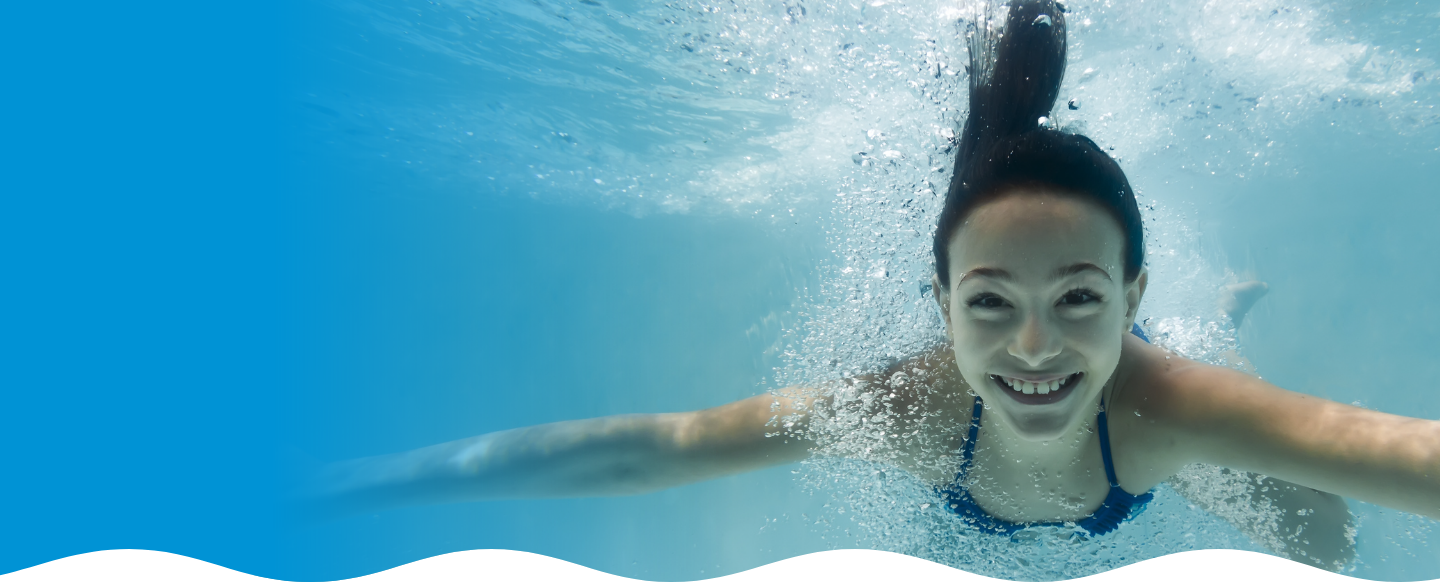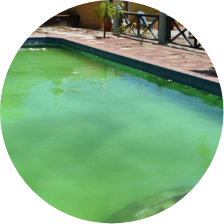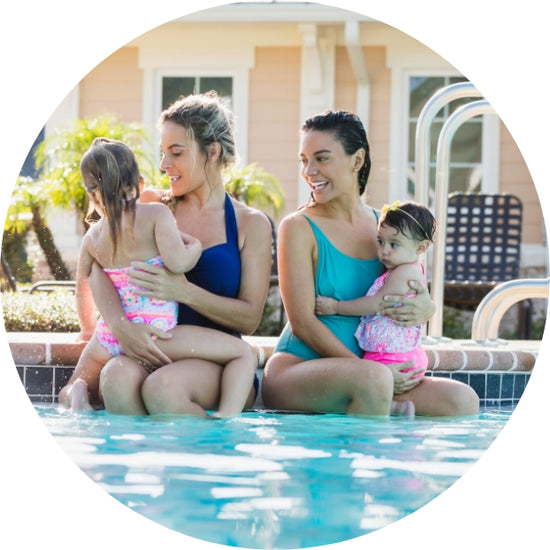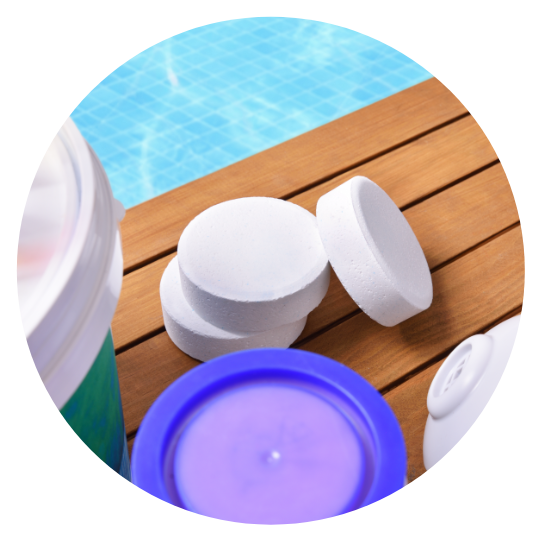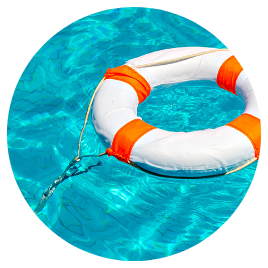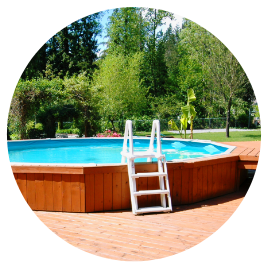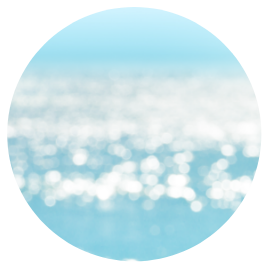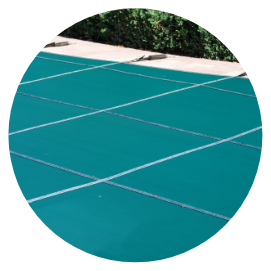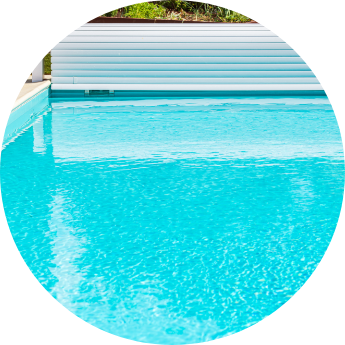
Opening your pool
To ensure a successful and fun season, you must balance your pool water and prepare your pool equipment. HTH™ can help you do both!
Frequently asked questions
What is a salt pool or a salt-water chlorinator?

A: A salt water pool simply uses a process that takes salt (sodium chloride) and breaks it down to convert it into chlorine that sanitizes your pool water.
What is chlorine stabilizer?

A: Stabilizer or cyanuric acid is a chemical that protects the chlorine from being degraded by UV rays.
What is “Total Alkalinity”?

A: Total Alkalinity, when maintained in the proper range (60 – 120 ppm) helps keep the pH level in range (7.2 – 7.8). It is a buffer for the pH.
How often do I need to clean my pool?

A: It really depends on your pool water chemistry, but adding sanitizing chemicals every week is pretty standard across all pool types and sizes. To find out if your pool needs chemicals that clean the water and make it healthy for swimming, you'll need to test the water first. Then add balancers, shock and sanitizers as suggested by your pool kit or text strips. If your question is referring to the physical cleaning (brushing, vacuuming, etc) of the pool, that’s typically done when debris is visible in the pool.
Should I always leave my pool filter on?

A: Keeping the water in your pool moving helps avoid organic growth like algae. Running your pool pumps/filter 12 to 24 hours is standard to keep your pool clean and clear with a minimum of 8-12 hrs per day, preferably during and after pool use. Run 24 hours when experiencing either algae or cloudy water.
What should I do about buildup on my swimming pool tiles?

A: Tile line scum should be cleaned with a pool surface cleaner and a brush or sponge.
How can I tell if my pool is leaking?

A: Normal water loss during the season may average about an inch per week; more during extreme heat or high use (splash-out). If you're noticing more than that in a short period of time, there’s a chance you could have a leak.
Does chlorine kill all bacteria?

A: Chlorine can typically kill 99.9% of the bacteria in the water.
How often should I test my pool?

A: Test your pool water 1x per week, and after heavy rain, extreme heat or increased activity.
What should I do if swimming makes my eyes burn?

A: If your eyes burn, your pool chemicals aren't balanced properly. Test your water and add pool balancers as recommended by your test kit or test strips results. Most likely, the culprit is unbalanced pH or combined chlorine (shock is needed to eliminate this combined chlorine).
How do I prevent a strong chlorine smell?

A: A strong chlorine smell is actually an indicator of not enough free chlorine to properly sanitize your pool water. Test your water, and add the recommended amount of pool shock to reach at least 5 ppm free available chlorine. Wait until chlorine returns to 1 to 4 ppm before swimming.
